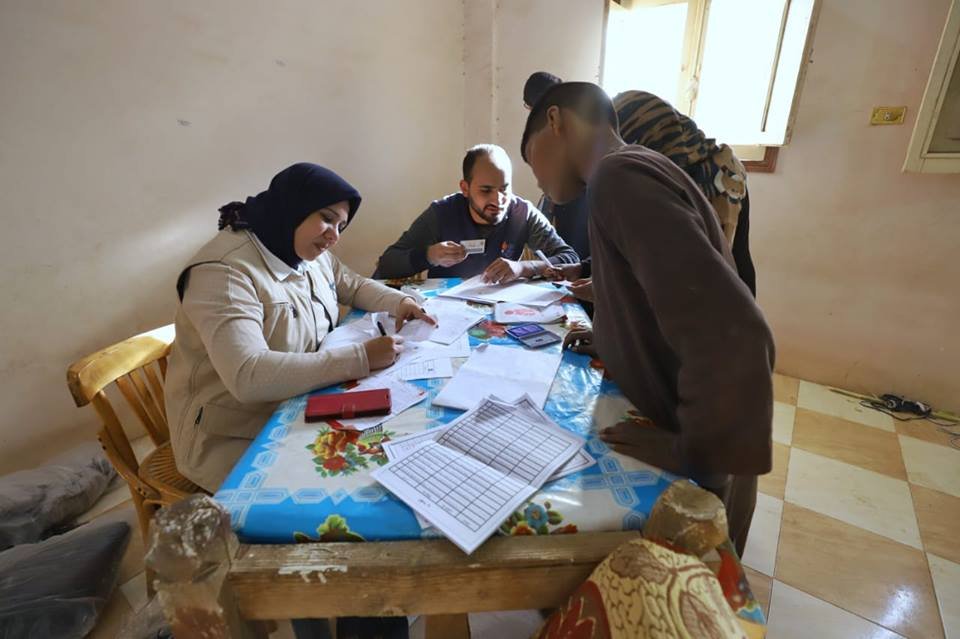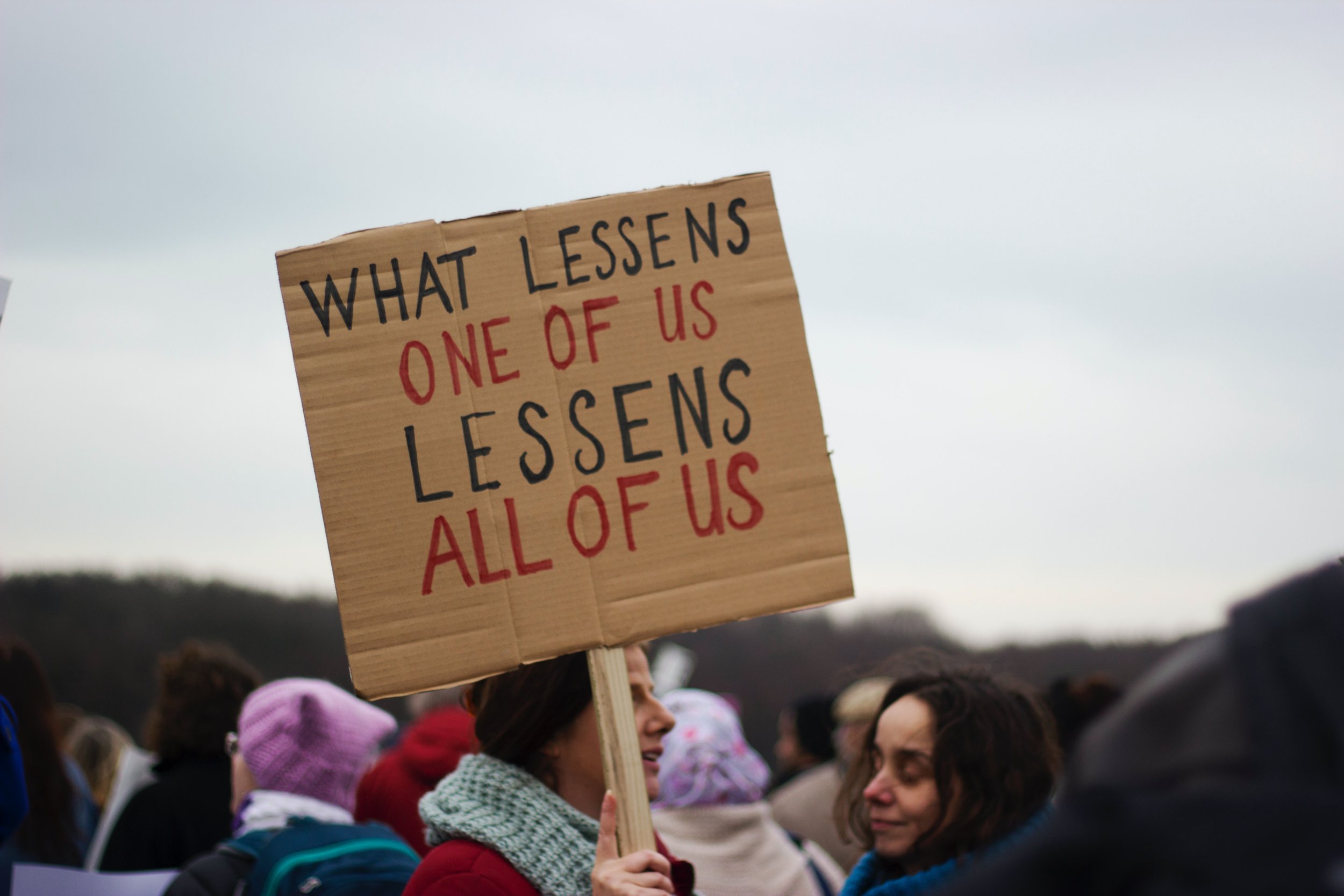Welcoming the Stranger at Our Border
Author, immigration reform advocate, and pro bono lawyer, Linda Dakin-Grimm, discusses how her faith influences her work and one of her many successful asylum cases reuniting a family from Guatemala separated at the U.S. border.
Southwire Company and Georgia Schools Innovative Partnership Increases At-Risk Students’ Graduation Rates
SOCIAL EQUITY SERIES:
How does a leading wire and cable manufacturer become a source of transformation for at-risk students? Burt Fealing from Southwire and Ethan Rouen from the Harvard Business School describe the 12 for Life program and how it has partnered with communities and achieved collective success.
Can Racially Biased Police Practices Be Fixed?
SOCIAL EQUITY SERIES:
Police practices and racial bias remain joined in a tortured dance that many times leads to tragic consequences. How does creative and thoughtful leadership resolve this historical relationship and produce equitable and fair outcomes? Former Chief of Police Renée Hall discusses the continuing struggle to align effective police practices with meaningful solutions.
OneGoal: A Social Impact Solution Where Your Journey Can Become Your Genius
SOCIAL EQUITY SERIES:
OneGoal reimagines secondary educational support by visualizing not just what its students plan to achieve but also who they become on their educational journey. OneGoal’s leadership seeks not merely to change the educational support system, but to change how society views the gifts each student develops along the way.
Empowering Young People in Low- and Middle-Income Countries Can Ease the Immigration Crisis and Save Lives
OPINION COMMENTARY:
Like many from countries where poverty and unemployment run high, a large number of young people in Upper Egypt feel hopeless. Ahmed Elmoursi proposes setting up training academies in the region to address the skills gap and provide the needed bridge between school and work.
The Long Haul: Engineering High-Tech Solutions to the Organ Shortage
INNOVATIONS IN ORGAN DONATION SERIES:
Across the globe, the need for organ transplantation has far outpaced the supply of organs. Mary Sauer shares her personal story and describes pioneering innovations that could solve the organ shortage crisis.
Enhancing Access to Organ Transplantation — and Why a Technological Leap is Necessary
INNOVATIONS IN ORGAN DONATION SERIES:
In the United States, the number of people on the transplant waiting list and those who die waiting for an organ continues to rise. James Lytle explains why policy changes are not, by themselves, likely to solve this crisis and why technological advances are necessary to save lives.
The Politicization of ESG Investing
There is currently an intense political divide in the United States regarding the integration of environmental, social, and governance (“ESG”) factors into the investment decisions of public and private pension funds. The key issues are whether ESG factors are appropriate considerations in furthering optimal financial performance and whether it is appropriate for plan fiduciaries to consider potential collateral social or environmental benefits in making their investment decisions. David Cifrino discusses the history, fiduciary law, financial performance and regulation associated with ESG investing.
Dr. Martin Luther King's Social Gospel
As the nation pauses for our annual Martin Luther King Day celebration, Harvard Divinity School legend, Dr. Preston Williams is keeping Dr. King’s enduring legacy alive. After five decades of service to Harvard and a lifetime of service to humanity, Dr. Williams is hopeful about America’s racial future.
Solving Workforce Skills Gaps: Community Colleges, Employers and Integrators
FUTURE OF WORK SERIES:
Quality jobs that provide local living wages and equitable access to career pathways have become a critical part of the “future of work” conversation. Richard Kane and Barry Puritz of the Harvard Business School Club of New York’s Skills Gap Initiative, and Kenneth Adams, President of the LaGuardia Community College, discuss the creation of a non-degree program that is providing life-changing career pathways for individuals from low-income communities.
Tracking New Trends in the Labor Movement
FUTURE OF WORK SERIES:
Among younger workers, labor unions are gaining popularity. Steven Greenhouse explains how this movement has become more democratic than it was a generation ago, and he provides policy recommendations for the future of work.
We Don’t Need Permission: How Black Business Can Change Our World
Eric Collins, founder of Impact X Capital and host of the UK The Money Maker, discusses how black entrepreneurship and business ownership is a pathway to black empowerment. He gives us his advice on how we can be disruptive visionaries and boldly create the world we want to see.
College Attainment: A Right and a “Right-Fit” Approach for Underrepresented Students
College completion drives economic outcomes for Black and Latinx students in the US. Students from vulnerable communities can realize their college goals with “right fit” educational experiences. Lesley Poole, CEO, and Vincena Allen, Chief Growth Officer, of The SEED Foundation discuss their approach to ensuring college success for underrepresented students.
Ambiguous Loss: Giving a Name to Global Disappearances
Climate change, natural resources depletion, COVID-19 pandemic, Russia–Ukraine war, and the possibility of a nuclear accident are some of the world-wide crises that we are facing. Some say these potential challenges underlie a mental health crisis. True for some, but for the majority of us, it is not an illness, but rather, a crisis of ambiguity and loss.
Digital Transformation in Ukraine: Before, During, and After the War
THE IMPACT OF THE WAR IN UKRAINE SERIES:
Despite the war disrupting many of Ukraine’s development goals, Valeriya Ionan, the Deputy Minister for Eurointegration, outlines the digital innovations born out of conflict and how the Ministry of Digital Transformation is accelerating the digitalisation of Ukraine.
Ukrainian Refugee Crisis at the Romanian Border: First Responders – The Jesuit Refugee Service Romania
THE IMPACT OF THE WAR IN UKRAINE SERIES:
As the war in Ukraine continues, millions of people have been displaced from their homes. Stefan Leonescu discusses the response of the Jesuit Refugee Service Romania to the Ukrainian Refugee Crisis, and details the challenges encountered with international humanitarian law and the areas for improvement.
Leadership Lessons from Ukraine
THE IMPACT OF THE WAR IN UKRAINE SERIES:
The hundreds, the partisans, the barriers — these and more make up the “secret sauce” that is helping Ukraine win. Robert Homans, who worked in Ukraine, describes some of their tactics and what he hopes will happen after the war.
Leadership is Not Morally Neutral: Supporting LGBTQ Youth
The recent politicization of LGBTQ+ youth is a reckless abuse of power without regard to the child casualties. Harvard Professor Tim McCarthy and Sam Ames from The Trevor Project discuss the paradox of progress, the current culture war, the struggles and accomplishments of the LGBTQ+ community, and the continued need for resistance, resilience, and advocacy.
The ERA: A New Foundation for Equality in the United States
In 21st century America, the battle for gender equality persists. In nearly a century after it was first proposed in Congress, the Equal Rights Amendment’s (ERA) simple guarantee that “Equality of rights under the law shall not be denied or abridged by the United States or by any State on account of sex” still is not codified in the US Constitution. At a time when women’s rights are under assault, passing the ERA is more urgent than ever. Enshrining the ERA in the constitution may well depend on the composition of the next Congress and the urgency of support by the American people.
The Preemption Prescription: Combatting Health Disparities Caused by State Pharmaceutical Restrictions
More and more, the provision of healthcare is crossing state lines. Allison Whelan argues that a fractured state-by-state approach to healthcare regulation exacerbates disparities among various populations. As a partial solution, she discusses whether Congress should amend the Food, Drug, and Cosmetic Act to pre-empt state pharmaceutical bans and restrictions.




















